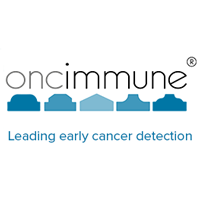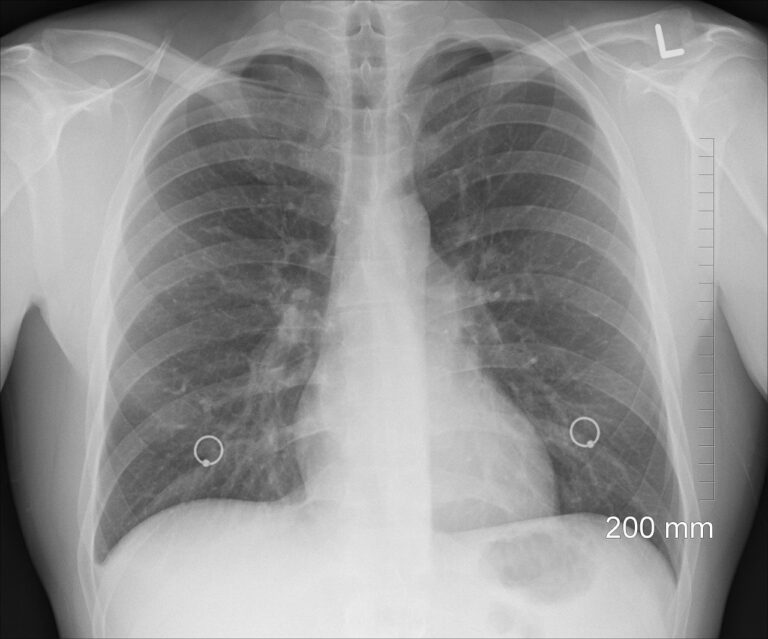Oncimmune Holdings plc (LON:ONC), a leading early cancer detection company developing and commercialising its proprietary EarlyCDT® platform technology, today provided the following update on the business ahead of the announcement of full year results expected in November, 2017.
Geoffrey Hamilton-Fairley, CEO of Oncimmune Holdings Plc, commented: “At the time of our IPO we laid out a very clear growth strategy involving generating revenue from multiple products, regions and partners and we have continued to make significant progress in delivering on this. Receipt of CE Mark for our EarlyCDT®-Lung kit and signing of our first distribution agreements in Asia highlights our ability to expand and create revenue in world markets. With progress recently also made in the US, including establishing a preliminary distribution partnership with a major US pulmonology sales force for the use of EarlyCDT®-Lung in assessing indeterminate lung nodules, we look forward, with confidence, to delivering value in the medium and long term.”
Business Update
The recent period has seen the Company continue to make good progress against the commercialisation plans outlined at the IPO. Our strategy remains to improve significantly the outcomes of cancer patients through early detection of the disease and enhance treatment pathways. Detecting early stage disease has two key benefits: better survival for the patients; and significantly lower cost of treatment as most of these early stage patients do not need expensive chemotherapy. We intend to develop, and make commercially available and widely accessible, accurate early cancer detection tests for multiple cancer types.
EarlyCDT®-Lung
In the US, we have continued to work to identify an optimal sales and marketing cycle where a physician re-orders the EarlyCDT®-Lung test without the need (and expense) of a repeat sales visit. As stated in our business update in May 2017, we will invest further in sales support and marketing to support our distributors whilst ensuring that our partners deliver high quality and long-term sales as we gain confidence in this approach gaining traction. We remain cautious, however, in terms of near term revenue growth from this channel as positioning of the test is key to long-term success.
Pilot Pulmonology Distribution Project
Alongside our focus on maximising sales from our existing target market, we have now also entered a preliminary distribution partnership with a major US pulmonology sales force. This followed a detailed research study which verified the clinical attractiveness of using the EarlyCDT®-Lung in aiding in the risk assessment of indeterminate pulmonary nodules. The partnership is expected to run for four months and if successful should lead to a distribution agreement covering a significant proportion of the pulmonologists in the US. The Company is also exploring further pulmonology distribution channels in the US with other parties.
Indeterminate nodules – growths in the lung which may or may not be malignant – are a major concern for pulmonologists. There are currently more than 1.5m patients with pulmonary nodules per annum in the USi and the number is expected to grow rapidly with the expected increased adoption of CT screening for high risk patients in the US. The EarlyCDT®-Lung test has the potential to enhance significantly current risk assessment protocols recommended in guidelines in the USii. By a simple blood test that is highly specific (and complementary to CT’s sensitivity), it can assist in placing patients into the appropriate clinical pathway and help to reduce the number of patients who are in the ‘watch and wait’ category. Data published in the Journal of Thoracic Oncologyiii from Vanderbilt University showed that a positive EarlyCDT®-Lung test indicates that a nodule is two to three times more likely to be cancer.
Asian Distribution
Outside of the US, we are progressing well. Our Asian business has four distribution agreements in place which provide £5.6m in minimum payment guarantees over the next five years. We expect to sign more distribution contracts in Asia and Europe during the upcoming months, with several of these arrangements also likely to include guaranteed minimum payments that would add to our confidence in our chosen distributors and enhance revenue visibility/predictability.
Our particular focus for the Asian market has been set on China, where lung cancer remains the number one killer of both men and women, with over 700,000 new cases of lung cancer diagnosed annually. We have entered into discussions with several diagnostic companies for collaboration opportunities including licensing and registration, marketing commercialisation, distribution and local manufacturing.
R&D and Trials
Our R&D programme continues to progress. We have laid the foundations for the commercial panel for the EarlyCDT®-Liver test, and remain on track to complete this in the second half of 2017, with EarlyCDT®-Ovarian thereafter.
Interim data from the NHS Lung Cancer Screening Trial was recently presented at the European 27th International Congress of the European Respiratory Society (ERS) in Milan. The results remain encouraging, most notably that over 75% of the patients being diagnosed have early stage cancers (stage 1 & 2) as opposed to the vast majority in normal practice presenting with late stage cancer – which is generally incurable. Now fully recruited, with 12,210 patients, this is the largest randomised control trial using biomarkers ever conducted in lung cancer. The final study results, including the control arm, will be published after all patients have completed two years of follow up CT scans and these are expected in 2019.
Personalised Medicine & Companion Diagnostics
In companion diagnostics, we recently announced the presentation of data on the use of Oncimmune’s autoantibody technology to successfully predict disease recurrence in subjects undergoing immunotherapy with Scancell Holding plc’s SCIB1 immunotherapy for malignant melanoma.
The collaborative study, which also included a team at the University of Nottingham, developed a method using a panel of seven tumour associated autoantibodies to predict disease recurrence in patients with resected Stage III/IV melanoma treated with SCIB1. Whilst Phase I/II trials with SCIB1 have been highly encouraging, this additional information potentially enables the identification of patients prior to commencement of therapy who are most likely to respond to treatment in future clinical trials with SCIB1.
We are running a number of further studies alongside drug development programs and we expect to be able to announce results from these in the next 12 months that we expect will support development of this area as a separate business unit.
Finally, in the second half of 2017 we expect to announce results relating to the second generation of tests from our autoantibody platform where patients can be their own control and thus testing is significantly more accurate. We believe this autoantibody “fingerprint” will bring new levels of performance and lead to a pan-cancer test which could complement the global vision of some major companies currently investing heavily in developing personalised medicine platforms and services.
In conclusion, we continue to deliver on our plan to create value from our core autoantibody platform and the board is increasingly confident that the Company is well placed to execute that plan and deliver value in the medium and long term.
The Company will report its year end results for 31 May 2017 in November and at that time will be able to give some more detail on its key programmes.







































